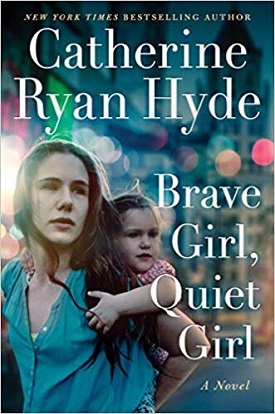 Synopsis:
Synopsis:
Brooke is a recently divorced single mother. Financially strapped, she is living with her mother and holding tight to the one thing that matters most — her beautiful two-year-old daughter, Etta. Her ex-husband never wanted children and has no relationship with Etta.
In a matter of seconds, Brooke is violently carjacked while driving her mother’s car. Helpless and terrified, all she can do is watch as Etta, still strapped into her car seat in the back of the vehicle, disappears into the Los Angeles night.
Miles away, Etta is found on a sidewalk still strapped into her car seat, by Molly, a homeless sixteen-year-old who is living on the streets of Los Angeles with her friend, Bodhi. Rejected and thrown out of her parents’ Utah home, and with a future as stable as the wooden crate in which they sleep, Molly survives from day-to-day by her wits. As unpredictable as her life is, she’s stunned to find Etta abandoned and alone. Shielding the little girl from the elements and nighttime predators, Molly puts herself in harm’s way to protect a little girl she has never met before, but is as lost as she is.
Brooke’s and Molly’s desperate paths converge and an unlikely, tenuous friendship develops. Brooke and Molly discover that what’s lost — and what’s found — can change in a heartbeat. Brave Girl, Quiet Girl deals with friendship, motherhood, and the journey to a place called home.
Review:

Author Catherine Ryan Hyde is beloved for her approach to storytelling and the themes she explores. Her thirty-six books focus on the human condition — the struggles, foibles, and lessons learned by ordinary people who face and overcome adversity, and challenges big and small. Hyde says that in her writing she repeatedly returns to one question: “What is our responsibility to each other?” She is “fascinated by people who help not because they have to but because they can.” Her latest novel, Brave Girl, Quiet Girl explores the question of whether we have a responsibility to the people we encounter, and what it means to have a home. It focuses on a vulnerable teenage girl who helps not because she has to, but because it is her nature. Hyde examines the series of events that she sets in motion and the ways in which the lives of three women and one little girl are forever changed as a result.
Thirty-nine-year-old Brooke’s job in retail does not pay enough for her to live independently with her two-year-old daughter, Etta. Fortunately, her mother has permitted Brooke and Etta to move in with her. Unfortunately, her mother is a bitter, judgmental woman who openly expresses her displeasure with and disappointment in Brooke, and Brooke’s decisions. Despite her crusty, caustic demeanor, she cares about Brooke and Etta, but demonstrates her feelings by nagging and cajoling, driving Brooke to emotionally distance herself in order to cope. Etta is the light in Brooke’s life, the child she gave up her marriage in order to have. She is constantly amazed at the power of her love for Etta. “Every now and then my love for that child hit me so hard I felt bowled over. Like a turtle knocked upside down onto its shell, unable to right itself.” Brooke would never deliberately harm Etta, but her mother’s attitude aggravates her and prompts her, from time to time, to passive-aggressively respond with rebellion. And one small act of defiance buys Brooke severe self-recrimination and guilt.
As the story opens, Brooke is the victim of a violent, harrowing carjacking in West Los Angeles. As has happened in numerous actual instances, the carjackers do not realize that Etta is strapped into her car seat in the rear of the vehicle, and Brooke watches helplessly as her mother’s car speeds away with her little girl at the mercy of criminals. An intense search for Etta begins.
Miles away, Molly is living in a makeshift shelter with her platonic friend, Bodhi, who steals food for the two of them. At night, they snuggle close to each other to keep warm, and during the day Molly searches for anything she can cash in at the recycling center to earn money with which to buy food. Her most recent efforts have yielded enough change that she can purchase an apple and banana under the watchful eyes of the store employees who are repulsed by her filthy appearance, convinced that she intends to shoplift. As she makes her way back to the crate where she will spend another long night, she happens upon a car seat abandoned on the sidewalk. She is shocked to see that little Etta is still strapped into the seat. Molly knows how to care for Etta because she has two younger sisters back home in Utah. She collects Etta and the car seat, and trudges back to the improvised shelter where she and Bodhi agree she will remain while Bodhi finds a telephone to summon the police. He leaves her with a box of goldfish crackers and some apple juice . . . but never returns. Molly knows that means he has probably been arrested, and she is now on her own. She must keep Etta safe until she can be reunited with her parents. She doesn’t have much faith in her ability to provide what Etta needs. “I wasn’t enough. I was mostly frozen up and broken and too scared and confused to be doing her much good, and she deserved way better and I knew it. But it didn’t matter what I knew, because I was all she had and that’s just the way it was.” The streets of Los Angeles are dangerous, and Molly knows that, for now, only she can shield Etta from harm. As the night drags on, Molly contemplates her options. She knows she must keep Etta quiet, so “I started whispering in her ear, but so quiet. It was so quiet I wasn’t sure she could even hear me. It was more like making the words with my lips against her ear, but then just this tiny breath of air that was the sound. I said, ‘Brave girl, quiet girl.'” Instinctively perceiving Molly’s fear and despair, Etta whispers those powerful words right back to her and an unbreakable bond is formed. At one point, Molly almost finds herself praying, too. But then she remembers that “God and I were not on speaking terms because he hated me — at least according to my mother. I didn’t really believe her, but just the fact of someone saying a thing like that to you can leave this bad taste in your mouth that never seems to go away.”
Sometimes you just have to take a chance on something, because otherwise you definitely end up with nothing. You just have to be a brave girl sometimes, like I told the baby a thousand times that night.”
Hyde takes readers from the street on which Brooke hysterically watches her mother’s car disappear to an industrial section of Los Angeles where Molly waits for an opportunity to reunite Etta with her parents, vividly describing the sights, sounds, and her characters’ inner dialogues. The carjacking is gut-wrenching, but so is Hyde’s depiction of Molly’s predicament as the sounds of the night invade her hiding place and terrify her while she lovingly comforts the frightened little girl who does not understand what is happening to her and wants her mother.
Hyde compassionately portrays Brooke’s terrified anguish as she waits for word from the police officers who are frantically searching for her child. Her desperation and anguish are palpable, visceral, and gripping. All she can do is send a kind of prayer out into the world, attaching to it all of her hopes, asking that whomever has her child will return Etta to her unscathed. Sequestered in her room, away from her mother, she crawls out onto the roof, just as she did as a girl, and says a few words into the night. “I said, ‘Please be gentle with her. Please don’t hurt her. Please comfort her when she cries. Please don’t let her be too scared. She’s a good girl. She’s totally innocent. She doesn’t deserve anything bad from anybody. Please take good care of her and get her back to me.’ Then I sat still, as if listening. As if waiting for the night to say something in reply. Nothing came back to me except silence.”
Eventually, Brooke and Molly come face to face and Hyde probes the tentative, wary manner in which they approach each other. Hyde illustrates the distrust each feels — with good reason — and how they must overcome their own trepidation, wariness, and preconceived ideas in order to follow their better instincts and forge a relationship. They gradually learn each other’s histories and the events that set in motion the horrific event that caused their lives to intersect. Both need to design a path forward, recognizing that the choices they make at this moment in their lives will inform and shape their futures. Etta’s innocent attachment to “Molly, Molly, Molly,” as she refers to her, along with the information provided by the police, inspire Brooke to see the teenager through her young daughter’s eyes, and enable her to acknowledge her own vulnerability, quickness to judge, and preconceived ideas about people. She recognizes that her worldview is on the line and she has an opportunity to finally craft the life she desires with her child.
As always, Hyde writes in a straight-forward style, employing her economical style in a powerful, deeply moving manner. The compassion Hyde feels for her characters and about her subject matter is ever on display in her books, but never more so than in Brave Girl, Quiet Girl. It is evident from the way in which she describes each woman’s journey that she cares deeply about their well-being and the themes she plumbs, including the complexities of motherhood and the overwhelming sense of responsibility it engenders, as well as unconditional love and acceptance of one’s children. She also examines prejudice in various forms, from the bypassers on the Los Angeles streets who fail to see Molly, much less assist her when she begs for their help, to homophobia, to intolerance and condemnation in the name of religion. She depicts underemployment and the inability of so many Americans to earn a living wage that permits them to provide for their families, and the inadequacies of the foster care system. She deftly examines every topic by simply telling the story through the alternating first-person perspectives of Brooke and Molly in a credible, believable way. Hyde has repeatedly demonstrated her prowess at relating story through teenage voices and Molly’s is absolutely flawless. She skillfully invites readers to experience the story through the eyes of empathetic characters whose circumstances and futures readers can’t help but also care deeply about. And as in her other novels, Hyde examines what it means to be a family: how families are formed, how they can be torn apart, and the importance of having a home of one’s own — a place that is welcoming, safe, and nurturing — in order to thrive.
With Brave Girl, Quiet Girl, Hyde again demonstrates compellingly and decisively why she is one of America’s premiere storytellers. The book is a tour de force character study, as well as a thoughtful, revelatory, and restrained examination of societal issues that Hyde never lets slip into a preachy or heavy-handed tone. Rather, the book is deeply provocative, especially because the story and characters continue to resonate well after reading the last page. Hyde’s writing always shows that people are inherently resilient and capable of meaningful change, and illustrates how empowerment comes from enlightenment. Her faith in the goodness of humanity is always evident, and Brave Girl, Quiet Girl is no exception. Simply put, it is the book we all need to read right now because it is a story in which we can lose ourselves for a bit, get to know flawed, deeply human, and endearing characters, cheer for them, and feel uplifted by the experience of having read about their expedition to a place they can call home. It is indisputably one of the best books of 2020.





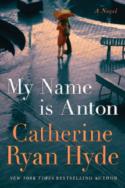

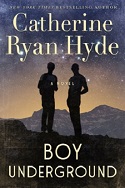
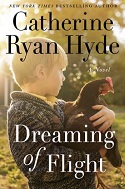

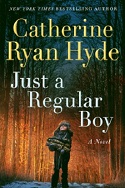




Comments are closed.